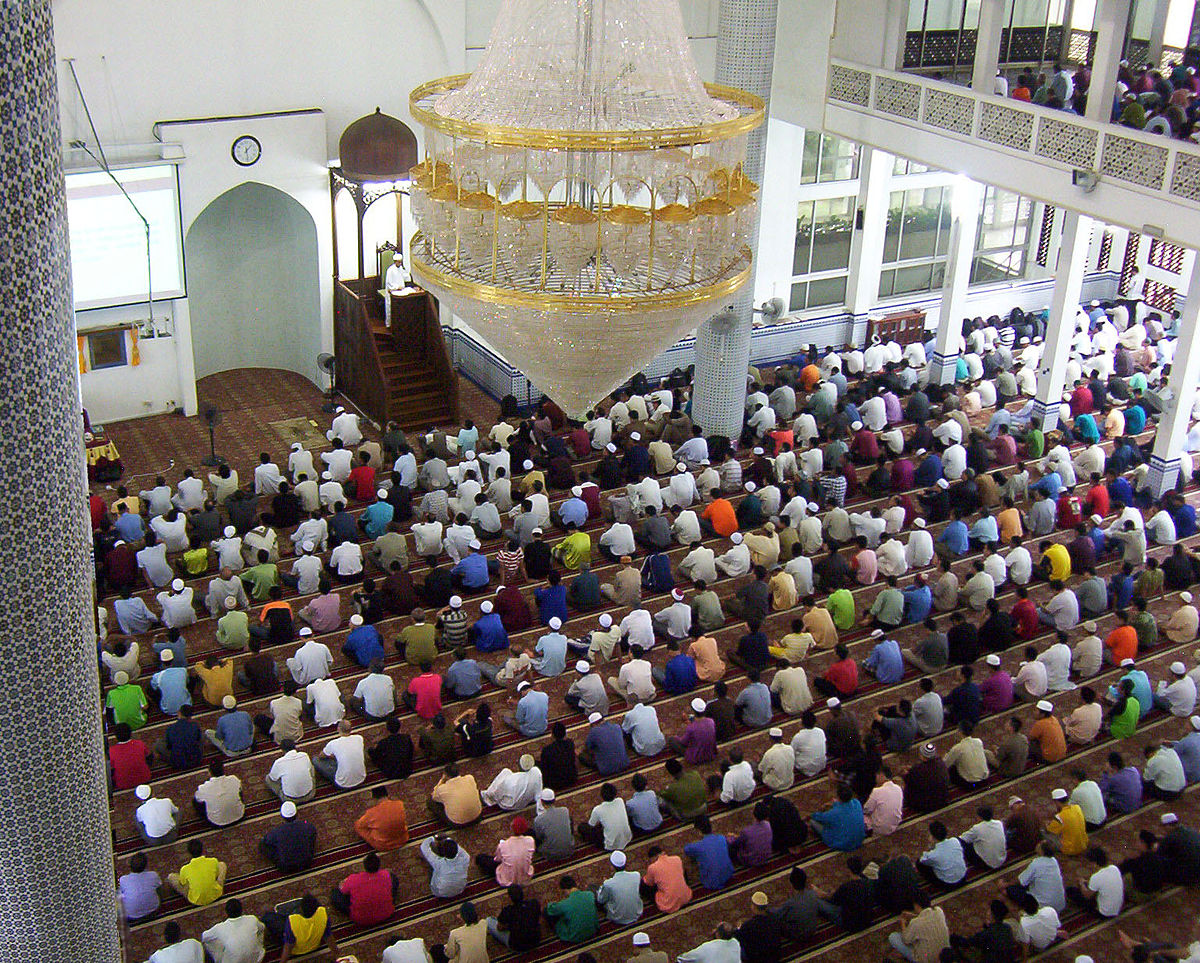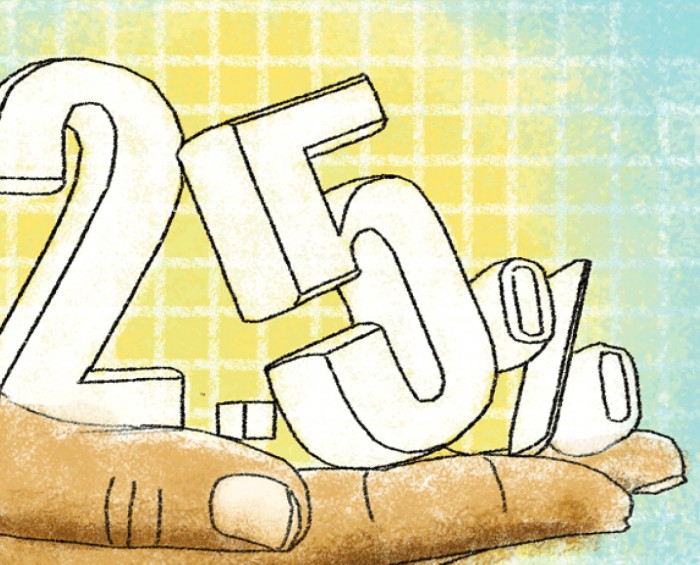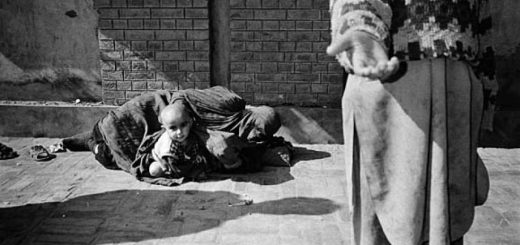QUESTION:
What do the scholars of the Dīn and muftīs of the Sacred Law state regarding the following issue: I live here in the U.K. and have taken out a student loan of £27,000 from the government, so will Zakāh be Fard for me, because if one subtracts the loan amount from my savings, then the amount left over does not reach the threshold amount for Zakāh. There is also a fatwā elsewhere which says that Zakāh is not Fard for student loans, so is it the case that Zakāh will not be Fard for me?
Questioner: Zahid from U.K.
ANSWER:
بسم اللہ الرحمن الرحیم
الجواب بعون الملک الوھاب اللھم ھدایۃ الحق والصواب
It is correct in saying that such a loan which is demanded from a person, whether it is required to be given back straight away or deferred (paying it by a specific date later on) – in both cases – will prevent Zakāh becoming wājib, meaning, it will be excluded from the amount that Zakāh is paid on, and if the threshold no longer remains after excluding it, then Zakāh will not be wājib.
However, any loan whose duration is commonly known, but there being no particular date specified for it, such as in the case of delayed dowry for women, as the time for fulfilling this is customarily at the time of divorce or death [of the husband]; there is no particular time period specified. Therefore, whether this kind of loan is excluded from the amount upon which Zakāh applies to or not – in other words, whether it prevents Zakāh being wājib or not – is differed upon among the scholars. However, the correct opinion is that this kind of loan will not prevent Zakāh being wājib, meaning, regardless of the amount of dowry, it will not be excluded from the amount upon which Zakāh is applicable to at the time of paying for such person. Just as it is stated in Fatāwā Hindiyyah,
وَذَكَرَ الْبَزْدَوِيُّ فِي شَرْحِ الْجَامِعِ الْكَبِيرِ قَالَ مَشَايِخُنَا رَحِمَهُمْ اللَّهُ تَعَالَى فِي رَجُلٍ عَلَيْهِ مَهْرٌ مُؤَجَّلٌ لِامْرَأَتِهِ، وَهُوَ لَا يُرِيدُ أَدَاءَهُ: لَا يُجْعَلُ مَانِعًا مِنْ الزَّكَاةِ لِعَدَمِ الْمُطَالَبَةِ فِي الْعَادَةِ، وَأَنَّهُ حَسَنٌ أَيْضًا هَكَذَا فِي جَوَاهِرِ الْفَتَاوَى
“Imām Bazdawī has mentioned in the commentary & explanation of al-Jāmi’ al-Kabīr that our scholars have stated regarding such a person for whom the dowry of the wife is deferred, and does not have the intention of fulfilling its payment [at that current moment in time], then this dowry will not be regarded as something which prevents Zakāh being wājib, because it is not usually demanded for, and this is also good a thing. It is stated as so in Jawāhir al-Fatāwā in a like manner.”
[Fatāwā al-Hindiyyah, vol 1, ch 1, pg 173]
Furthermore, it is stated in Fath al-Qadīr,
“وَلَوْ كَانَ عَلَيْهِ مَهْرٌ لِامْرَأَتِهِ وَهُوَ لَا يُرِيدُ أَدَاءَهُ لَا يُجْعَلُ مَانِعًا مِنْ الزَّكَاةِ ذَكَرَهُ فِي التُّحْفَةِ عَنْ بَعْضِهِمْ لِأَنَّهُ لَا يَعُدُّهُ دَيْنًا”
“If the dowry of a woman is due upon a man and he does not intend to pay it [as of yet – there and then], then it will not be regarded as something which is preventing Zakāh being wājib. The author of Tuhfah has mentioned this in his book from some others, because this is not regarded as a debt.”
[Fath al-Qadīr, vol 2, pg 163]
Likewise, it is stated in Bahār-e-Sharī’at that according to the correct stance, that which is a long-term debt (in other words a debt or loan which lasts until the end of its term i.e. for which no time limit is fixed), does not hinder Zakāh becoming wājib.
Since a long-term debt (of dowry) is not habitually claimed, thus no matter whatever amount the husband owes as dowry (to his wife), if he possesses the threshold amount, Zakāh is (still) wājib for him (meaning that owing dowry is not something which will hinder Zakāh being wājib upon him).
This especially applies with regards to deferred dowry (to be paid in the event of an Islamic divorce or death of the husband, etc.) which is common here (in India etc.), for which no specific time limit is fixed, because in this case, the wife does not really have the authority to make a claim for it, until death or divorce does not take place.
[Bahār-e-Sharī’at, vol 1, part 5, pg 879]
If one is to look into the student loan system in the U.K. properly, then the honorary & dignified scholars will agree with what I am requesting, that this is that kind of loan which does not prevent Zakāh becoming wājib, in other words, this loan will not be excluded from the amount upon which Zakāh is applicable to. This is because it is not even demanded for, and alongside this, a student is not even thought of or regarded as being in debt simply due to the fact there is so much leeway and several concessions in this regard.
This is due to the fact that the total loan which a student takes out is approximately £27,000, and alongside this loan, there is also a maintenance loan of approximately £20,000-£24,000 given for rent, living costs, etc. mainly for those living away. This is expected to be paid back after graduating within a 30-year window when the wage of a graduate is above £25,000.
For example, if a student is jobless all the way from graduation up until the next 30 years, or he does find a job, but the yearly wage does not exceed £25,000, then such a student will not need to pay back even a penny; it is completely wiped off.
In the aforementioned case, one is not having to pay back even a single penny, whereas the payment for a deferred dowry has to be paid at some point in time.
In the case of a student passing away within this 30-year timeframe, even then, this loan is still wiped off in its entirety. Whereas, in the case of dowry, it is due upon the inheritors.
If a student has any form of disability, due to which they are unable to earn a living, then this loan is wiped off. Whereas, in the case of dowry, it is not wiped off.
Thus, just how giving Zakāh is a must in the case of deferred dowry, likewise, it is also a must for people to fulfil the payment of Zakāh in the case of a student loan, regardless of the amount loaned, on the condition that one possesses the threshold amount.
واللہ تعالی اعلم ورسولہ اعلم صلی اللہ علیہ وآلہ وسلم
کتبہ ابو الحسن محمد قاسم ضیاء قادری
Answered by Mufti Qasim Zia al-Qadri
Translated by Haider Ali
Read the original Urdu answer here: [Q-ID0669] Do I have to pay Zakah if I have a £30,000 Student Loan debt?
Also see:
[Q-ID0683] Do I have to give Zakah if I have a mortgage debt?
[Q-ID0668] Is it permissible to take out a student loan in the UK?
[Q-ID0450] What is the ruling on work pension plans in the UK?
[Q-ID0260] Is it permissible to take out a mortgage in England?
[Q-ID0307] I already own one house, can I buy another via a mortgage?
[Q-ID0213] Is it permissible to donate or sell our body parts to others in Islam?
[Q-ID0228] What is the Islamic ruling on taking out a Life Insurance policy in the UK?
(Visited 7,673 times, 1 visits today) - Help someone, share the knowledge!






























![[Q-ID0207] I’ve not paid Zakah for many years, how shall I pay now?](https://www.seekerspath.co.uk/wp-content/themes/hueman-pro/assets/front/img/thumb-medium-empty.png)











